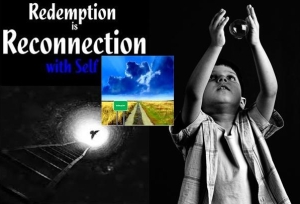“From the beginning men used God to justify the unjustifiable.”
― Salman Rushdie, The Satanic Verses
“Every religion is true one way or another. It is true when understood metaphorically. But when it gets stuck in its own metaphors, interpreting them as facts, then you are in trouble.”
― Joseph Campbell
“You find this curious fact, that the more intense has been the religion of any period and the more profound has been the dogmatic belief, the greater has been the cruelty and the worse has been the state of affairs.”
—Bertrand Russell
We humans are all believers and doubters, thinkers and non-thinkers, critical and less critical, self-reflective and group-motivated. We have especially cherished principles that we individually uphold, defend and even promote. In fact, we constantly aspire to make these principles the defining qualities of our individual existence. Come hell or high water, we stand by these principles.
But principles are not all eternal. The passing of time tests the meaningfulness of principles one sustains in her/his life through the years and some of them do not stand any longer. The more open-minded among us easily realize the tight spot and calmly accept the fact that they have to be abandoned. The new state of affairs calls for a fresh set of principles that address the needs of the present. On the one hand, the more innovative personalities have the natural acumen to spontaneously adapt into the new-fangled situation while on the other hand, the less creative are caught at a dead-end where their jealously guarded beliefs no longer match the here-and-now. Yet, with all the mismatch and the non-operative ideals, nobody within their ranks is willing to give up the irrelevant notions and give way to the challenges of the new despite all the odds along the way. We call this type of believers dogmatic.
But what really is dogmatism or to be dogmatic? First things first: “Dogmatism” and “dogmatic” are derivatives from “dogma”. So, as an entry point, it is important to initially get to a clear understanding of what a dogma is.
Dogmas are said to be vital pillars of a religion. There is a commonly held view that without dogmas, a religious group inevitably crumbles. Mainstream religions which are in fact likewise ancient have stood the tests of time and the pressures of socio-political aggressiveness because of their jealously preserved dogmas. A constant justification (read: rationalization) of these dogmas is even highlighted and strengthened in institutions of learning (e.g., seminaries) that train prospective “vanguards” of these religions through a time-honoured course called “Dogmatics”.
A dogma is basically an eternal principle within the sphere of a religion. A dogma´s structure and contents are basically of metaphysical nature, i.e., a totalizing conception of a certain aspect of what is believed to be reality formulated speculatively without the benefit of submitting it to the rigour of empirical analysis for the purpose of at least intersubjective and at most objective verification. But a dogma is a dogma because of its penumbra of permanence. A dogma cannot be altered “in all possible worlds” (with apologies to Leibniz) for it has the power of “mathematical incontrovertibility”. The “truth” generated by a dogma is non-negotiable.
Within the sphere of the so-called traditional, “orthodox” and “catholic” stream of Christianity, the Nicene Creed/Apostles´Creed is a set of dogmas that are unquestionable, unchangeable, eternal, permanent, indestructible. Anyone who attempts to question or reinterpret a dogma is called a heretic. This is precisely the reason why so many church councils were convened by the hierarchy of the early catholic church: To strike out heretical beliefs and excommunicate from the church their unyielding and unrepentant promoters. In a few instances, some were not only excommunicated but incarcerated and tortured even to the point of death.
Since religion is a non-scientific domain, it doesn´t accommodate the application of the scientific method of inquiry. Hence, any attempt of anybody to question in critical terms the tenability of a religious dogma through scientific analysis is a forbidden enterprise. Nobody questions a dogma and nobody interprets it except an institutionally authorized council composed of unwavering and highly stable men of “impeccable” moral characters and exceptional erudition in matters of church canons. (In the Roman Catholic Church, this council is known as the “Magisterium”.) In this sense, “dogmatism” or being “dogmatic” is an exceedingly appreciated and respected quality as it evokes an unassailable character of a man or woman of illustrious religious integrity.
But even terms exclusive to a “specialized” realm or discipline undergo an evolutionary process to the point of even breaking away from that very realm or discipline by way of appropriation. In this case, the term “dogmatism” and “dogmatic” which has been appropriated in the non-religious domain no longer carries the substance of its religious origin. However, a religious belief may be called “dogmatic” in the non-respectful and non-religious sense if such a belief has an element within it that continues to unreasonably persist despite all the pieces of evidence and logical arguments running contrary to and thus against its core meaning. To be “dogmatic” therefore in the “secular” sense is to be unyieldingly close-minded about certain beliefs despite the wide open possibilities of subjecting them to more rigorous and multifaceted tests, observations and/or experimentations of scientific and hence empirical nature.
In the light of what has so far been discussed, a person is said to be dogmatic if s/he unreasonably resists to submit a “dearly” held conviction into critical examination by logical analysis and/or empirical examination/observation. In this connection, a certain notion is called dogmatic if it is continued to be accepted, upheld and seen as true without undergoing the process of logical and/or empirical verification. As a case in point, to continue to believe that there is a “god” in the sky because “heaven” is “up there” is one of dogmatism because modern astronomy has ascertained us that there is no place called “heaven” up in the sky which according to the primeval cosmogony of ancient religion is the abode of a “god” and his “angels” where life is an endless experience of eternal bliss and delight (though in my opinion is a boring one). Still within the same speculative cosmological conception is the belief that down below the earth where we are located now is an ocean of “unquenchable fire” called “hell” which is the final destiny of unrepentant sinners. No different from one´s belief in “heaven” up there, the latter is also a case of dogmatism.
Dogmatism is witnessed in various areas of life where people just don´t have the humility to face and listen to critical analysis and evaluation of their “most cherished” beliefs and in the process accept the challenge of verification. In this sense, dogmatism is not simply stubbornness but one that is irrational. Irrational stubbornness is an infantile attitude and we human beings had been at that stage when we were yet children. Dogmatism understood as such is therefore triggered by a childish attitude of some people whose psychological and intellectual developments have been stunted despite the accumulation of years in their lives on earth.
Unverified beliefs held so dearly despite the preponderance of evidence contrary to them in the larger empirical and logical contexts is dogmatism at the core whether it is religious, political, economic, social, cultural, psychological, etc. We don´t call these beliefs hypotheses or theories because the latter are statements open to and are not scared of verification. Beliefs whose upholders are likewise their zealous protectors from the process of verification may appropriately be called “dogmas” even if they are not really matters of religion. However, mathematically accurate equations, logically true arguments and scientifically sustainable principles are never called dogmas even if we claim that the following—(1) the accuracy of 2 +2 = 4; (2) the validity of the argument that Juan is mortal on the basis of the premises that all human beings are mortal and Juan is a human being; and (3) the truth of the statement that the earth is spherical—are “eternally” true in “all possible worlds” like the dogmas of ancient religions.
Empirical verification though may not be scientific in the objective sense. One´s personal subjective experience is no less empirical but strictly within the context of the one who experiences. In this instance, the absolute accuracy of her/his experience is said to be verified only by her/him to whom it has happened. The exclusiveness of such an experience is therefore true only to the person who experienced it. It is therefore unfair to the person if someone—an “outsider”—would question the validity of the former´s personal experience. One´s belief in the truth of his own personal experience—though unassailable and unquestionable—cannot be construed as dogmatic for no “outsider” has the right and the ability to judge the said personal experience of another individual as such. Problems would only crop up if the person who had the experience would “universalize” her/his experience and expose it to the scientific “firing line” by making an objective claim that if such is true to her/him, it must also be true to all. It could possibly lead to the formulation of a dogmatism if unthinking sycophants of the religious cultic type would bite an individual´s “universalized” experience and transform it into an unquestionable, eternal and non-negotiable principle without the benefit of submitting it into objective verification.
© Ruel F. Pepa, 29 April 2014




